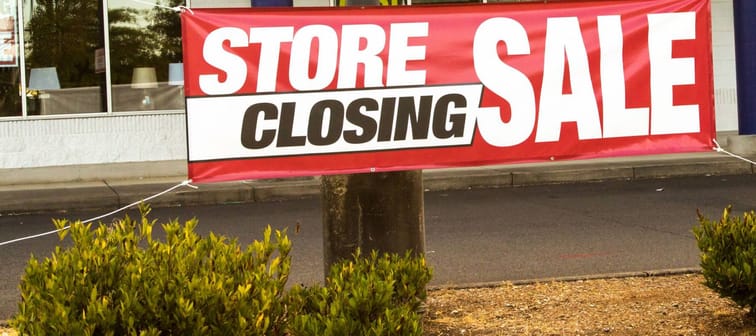1. Christopher & Banks

Stores closing: Up to 449
This women’s apparel retailer, founded in 1956 as Braun's Fashions, filed for bankruptcy in January 2021 and said it planned to close “a significant portion, if not all, of its brick-and-mortar stores.”
Only a few hours following the bankruptcy filing, liquidation company Hilco Merchant Resources announced going-out-of-business sales of 40% to 60% off were beginning at all 449 locations. Cozy cardigans and knits flew off the shelves for the first time in a long time.
Christopher & Banks President and CEO Keri Jones said the company chose to call it quits “due to the financial distress resulting from the pandemic and its ongoing impact.”
Up to $1 million in coverage for $1 per day
Most people put off life insurance shopping because they don’t want to sit on hold 3 times just to get a quote. Using a fast and budget-friendly service like Fabric can net you up to $1 million in coverage for cheap, and you’ll see your personalized rate within minutes. Get your quote today!
Get your quote2. Family Video

Stores closing: 250
This scrappy movie rental chain outlasted even Blockbuster but just couldn’t hold on any longer. It announced in January 2021 that it would close all of its remaining stores.
As the quality and convenience of streaming services improved, it became harder and harder to justify getting in the car to pick up a couple Blu-Rays — not to mention the drive back.
In 2020, Family Video had already culled almost half of its 510 locations.
“While we have faced digital competition from Netflix and others for years, nothing has been as devastating to our business as Covid-19,” the company stated in a press release.
3. Starbucks

Stores closing: 500
Don’t worry too much about your macchiatos: The world’s biggest coffeehouse chain is opening just as many stores as it’s closing.
As the pandemic unfolded, Starbucks announced plans to close 500 stores in the U.S. between 2020 and 2021 so it can focus on its drive-thru and curbside pickup options.
During an earnings call in October 2020, Starbucks President and CEO Kevin Johnson explained that the chain would actually end up with a slight surplus of stores once the transformation is complete.
“For the Americas, we expect new store openings to be approximately 850, located mostly in the U.S., with roughly 800 store closures across the segment in fiscal 2021, yielding approximately 50 net new stores,” Johnson said.
The richest 1% use an advisor. Do you?
Wealthy people know that having money is not the same as being good with money. WiserAdvisor can help you shape your financial future and connect with expert guidance . A trusted advisor helps you make smart choices about investments, retirement savings, and tax planning.
Try Now4. Gap

Stores closing: 220
A new clothing line called Yeezy Gap was due to hit store shelves in the first half of 2021, but even a 10-year deal with Kanye West might not be enough to save this iconic brand.
Consumers are less interested in apparel they now consider “overpriced” and “plain” compared to fast fashion brands like Zara or luxury brands like Nordstrom, says Forbes.
Gap Inc. announced in October that it would shutter 30% of its namesake and Banana Republic stores in North America by the end of 2023, “with the goal of having a smaller and healthier fleet of stores.” The move will shift most of the stores out of malls.
“We’ve been overly reliant on low-productivity, high-rent stores,” President and CEO Mark Breitbard said at the time in a statement. “We’ve used the past six months to address the real estate issues and accelerate our shift to a true omni-model.”
5. Godiva Chocolatier

Stores closing: 117
It’s a bitter end for this Belgian chocolate maker, which closed all of its brick-and-mortar stores across North America by the end of March.
Godiva had announced grand plans in 2019 to open 2,000 cafes worldwide, including more than 400 in North America, but COVID-19 decimated its in-store foot traffic.
“Demand for the in-person shopping experience offered through Godiva’s brick-and-mortar locations has waned as a result of the pandemic and its acceleration of changes in consumers’ shopping behavior,” the company told Today Food.
You’ll still be able to grab your favorite truffles, though. Godiva will maintain its online presence and market its products through major retailers like Target and Costco.
6. Justice

Stores closing: Up to 103
This tween retailer known for glittery earrings and sequin-covered tops was yet another casualty of retail conglomerate Ascena’s mounting debt.
Ascena, long-time owner of brands like Ann Taylor and Loft, went bankrupt last summer, taking more than 600 of its 826 Justice stores down with it. The company closed all its DressBarn stores in 2019.
Ascena later announced that it would shutter all remaining Justice stores by early 2021, after selling the business to Bluestar Alliance LLC for $90 million.
The company also completed its sale of Ann Taylor, Loft, Lane Bryant and Lou & Grey to Premium Apparel LLC for $540 million, and Catherines to FullBeauty Brands Operations for $40.8 million.
7. Banana Republic

Stores closing: 130
Like sister chain Gap, Banana Republic is dramatically slimming down its brick-and-mortar presence. Stores closed all across the country, from Florida to Hawaii, as Gap Inc. aims to double its online sales.
Banana Republic tends to focus on more stylish, business-friendly apparel, compared to Gap’s simpler designs, but the prices tend to be similar for both brands.
Not all of Gap Inc.’s businesses were lagging behind during the pandemic; its lower-priced brands performed quite well. The clothing conglomerate plans to open 30 to 40 more Old Navy stores and 100 more Athleta stores between 2020 and 2023.
8. The Children’s Place

Stores closing: 122
The Children's Place has been clothing kids for over 50 years, but parents see no need to buy the latest fun fashions while so many are learning remotely.
The company announced in June 2020 it would cut down its “mall-based, brick-and-mortar portfolio” in North America after first-quarter financial results revealed net sales had dropped almost 40% compared to the first quarter of 2019.
It planned to downsize by around 122 stores in 2021, with 25 closures in its first quarter and 97 planned by the end of the fiscal year.
9. J.C. Penney

Stores closing: Up to 90
This venerable department store chain has survived for almost 120 years but is suffering plenty of indignities along the way.
The company filed for bankruptcy in the spring of 2020, having endured years of declining sales before the lockdowns began, and planned to close almost 30% of its locations.
Mall owners Simon Property Group and Brookfield Asset Management Inc. swooped in to acquire J.C. Penney in December, rescuing it from financial ruin, but all of those closures are still going ahead.
The retailer axed 170 stores last year, and another 90 are on the chopping block for 2021.
10. Fossil

Stores closing: 65 to 75
It’s tough to keep acting like it’s business as usual after you lose $96 million.
Fossil Group, a watch and handbag designer known for brands like its namesake Fossil and Zodiac Watches, reported a big annual loss in its fourth quarter earnings call.
The company says it plans to take advantage of upcoming lease expirations and “refine” its store count by 15% to 20%. That will hopefully give it an opportunity to improve inventory management, strengthen its supply chain and “make Fossil a more agile, nimble and profitable company.”
At the same time, it anticipates digital sales will make up the majority of its sales in the long term and is accelerating its shift online.
11. Disney

Stores closing: at least 60
This mega brand pulls in money from a variety of sources — including its legendary movie production company, string of theme parks and successful streaming platform — but a diverse portfolio and pinch of magic isn’t enough to save all of its stores.
The Walt Disney Company announced in early March 2021 that at least 60 Disney stores — which sell clothing, toys and other merchandise inspired by its famous films — would close in North America this year.
The conglomerate will instead focus on its digital shopDisney platform, pushing greater integration with Disney Parks apps and the brand’s social media platforms.
12. Express

Stores closing: Up to 60
By this point in the pandemic, it’s clear no one’s buying work wear or party dresses for their Zoom meetings and virtual get-togethers.
Express knows it, too, and the company had already decided to drop a sizable fraction of its stores before COVID-19 arrived.
In January 2020, the retailer said it planned to shutter 91 of its stores by 2022 in an effort to save $80 million each year over the next three years. It terminated 31 U.S. locations that very month, and 35 additional stores were set to close by the end of January 2021.
13. Macy’s

Stores closing: 45
Another beloved department store is attempting to salvage what earnings it can during the digital shopping era, which has felled dozens of once-dominant chains.
In January 2020, Macy’s announced it would slash a fifth of its stores and 2,000 employees over three years to improve productivity.
Chairman and CEO Jeff Gennette added later, in an earnings call, that he wanted to experiment with smaller stores outside of big malls.
Twenty-nine of the 125 expected closures took place in 2020, according to CBS News. And CNBC recently divulged that Macy’s notified employees at around 45 of its stores that they will close by mid-2021.
14. Bed Bath & Beyond

Stores closing: 360
Calling Bed Bath & Beyond a “home goods retailer” probably sells it short. Its colossal locations are stuffed to the rafters with a dizzying array of everything from candles to couches.
But with the pandemic curbing foot traffic, the company said in July 2020 that it planned to close around 21% of its stores in the U.S. and Canada over two years. That’s 200 locations. Sixty-three would shutter by the end of the year.
“Our immediate goal is to right size our store network in such a way that reduces redundant stores and supports a digital-first platform, with the appropriate number of stores in the right locations, to serve customer demand and accelerate growth,” explained CEO John Hartmann during an earnings call.
In 2021, Bed Bath & Beyond officials said 43 stores were slated to close by the end of February and that liquidation sales were already in progress.
15. Fry’s Electronics

Stores closing: Up to 31
After almost 36 years in business, Fry’s Electronics finally pulled the plug, winding down operations and shutting down its online store completely.
The big-box chain was founded in Silicon Valley in 1985 and offered software, hardware and electronics, toys, cosmetics and home appliances.
The goodbye message on the store site blamed “changes in the retail industry and the challenges posed by the Covid-19 pandemic” for prompting the decision to close all 31 of its stores across nine states.
The company began the process in late February 2021, but it was unclear when the store closures would be completed.
16. Stock+Field

Stores closing: 25
This sporting and shooting goods store went out with a bang, holding some major liquidation sales as it filed for bankruptcy.
Stock+Field carried a variety of outdoor apparel and gear, including firearms and fishing equipment, as well as toys, pet food and plant bulbs and seeds.
“After more than 55 years, Stock+Field is closing its doors at all 25 locations,” the company announced on its website in January 2021. “There have been many challenges in 2020, and Stock+Field is not immune to them.”
However, it’s possible the company may give retail another shot. Stock+Field hopes to reopen stores “at some point in the future.”
17. Designer Brands stores

Stores closing: Up to 24
It’s a tough environment for flashy footwear. Even if you decide to dress up for your Zoom meetings, no one’s looking at your feet.
Designer Brands, which owns businesses like Designer Shoe Warehouse and Camuto Group, says it’s considering closing 65 U.S. stores “that would make sense to close upon their natural lease expirations” in the next four years.
The company says around 24 of these stores could be good candidates in 2021, but it was unclear which brands were on the chopping block.
Its flagship retail brand, DSW Designer Shoe Warehouse, was founded in 1991 and operated around 550 stores in the U.S. and Canada.
18. Best Buy

Stores closing: 30
Despite a surge in online sales, Best Buy has no desire to use that money to subsidize its brick-and-mortar stores. It plans to shutter at least 20 this year.
“While some traffic will likely shift back to our store channel in fiscal 2022, like many retailers, we believe much of what we saw last year will be permanent,” the company said in an earnings call.
In an earnings call in February 2021, Best Buy explained that it closed 20 locations in each of the previous two years and expected to close a higher number last year. It also laid off 5,000 employees, though it planned to add 2,000 part-time positions.
The company added that it’s trying to stay nimble by reducing the length of its lease terms, meaning the coming cuts could be abrupt.
19. GameStop

Stores closing: Dozens?
Early last year, a legion of investing pranksters made headlines the world over by sending GameStop’s stock to the moon — but it doesn’t seem like they actually shopped there.
The world’s largest gaming retailer has been shedding hundreds of stores over the last two years, and recent hijinks haven’t changed their plans. GameStop was on track to close a total of 1,000 locations by April 2021.
The company hasn’t made any major announcements since, but observers have reported more clearance sales across the country, so the culling may not be over. While the gaming industry has been booming as people avoid public spaces, the convenience of digital downloads means GameStop isn’t sharing in all that much of the success.
20. Paper Source

Stores closing: At least 11
Greeting card company Paper Source filed for bankruptcy in March 2021, just a year after Papyrus and Carlton Cards landed in the recycling bin.
Paper Source planned to close at least 11 stores while it tried to secure rental concessions and assess other potential locations for closure, according to a court filing.
The Chicago-based retailer was moving to expand after it acquired 30 shuttered Papyrus stores. However, it soon fell victim to the same declining sales that crumpled its rivals.
Founded in 1983, Paper Source sells gift and party supplies as well as stationery and stamps.
21. Kroger
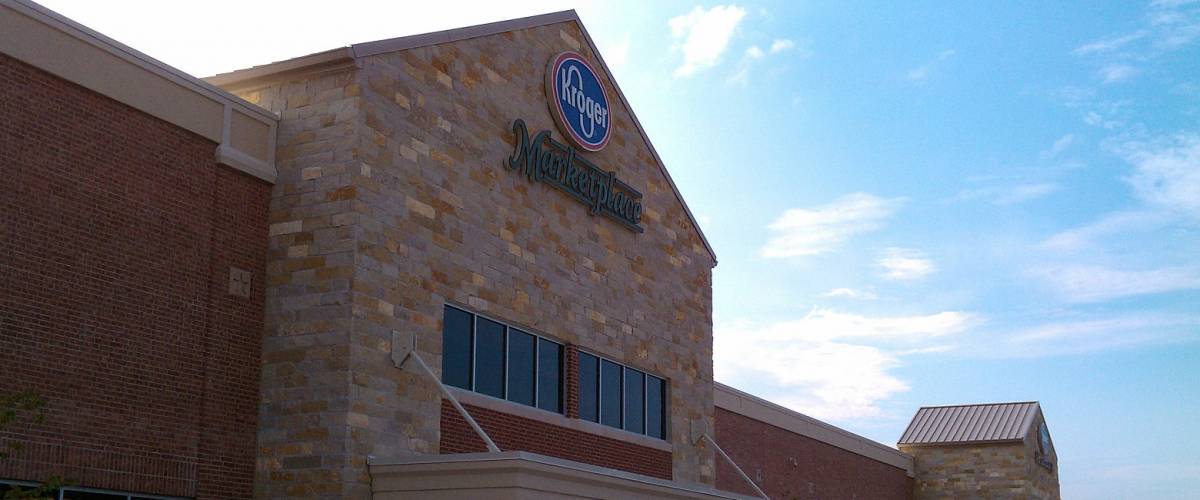
Stores closing: 9
Locals in Montrose, Texas, are mourning the demise of the “Disco Kroger” — named for a neighboring discotheque that arrived in 1980. At night, revelers would rifle through the aisles with a case of the munchies.
“We never want to close any of our stores; however, to keep prices low for our customers across the city, we cannot continue to operate a store that has lost money for a sustained period of time,” the supermarket chain explained in a statement.
Kroger promised it wouldn’t cut any of the store’s 74 jobs when it closed in mid-January 2021 and would offer employees jobs at nearby locations.
Another Kroger in Nokomis, Illinois — the only grocery store in the city — was set to close by the end of January last year. A Ralphs and Food 4 Less store in Long Beach, California, and two QFC stores in Seattle were closed in February, and another two Ralphs and one Food 4 Less in Los Angeles were slated to close in May.
22. Goodwill

Stores closing: 8
While struggling families could certainly use some deep discounts on clothes, books and toys, people are understandably wary of secondhand items right now. Goodwill stores closed for most of the pandemic.
The nonprofit thrift store closed eight locations and laid off 61 employees in the San Francisco Bay Area in March.
"We have had to make a difficult decision for economic reasons," said Mike Keenan, president and CEO of Goodwill Industries of the Greater East Bay.
"Our employees are our first priority, and we will continue to do everything we can to support them at this difficult time and fulfill the Goodwill mission in our remaining stores and facilities."
23. Michaels

Stores closing: At least 5
Crafty shoppers who kept an eye on the headlines were able to snag some marked-down scrapbooking and art supplies early last year.
Although the arts-and-crafts retailer didn’t make any formal announcements, news outlets have reported store closures across the country, including in New York and South Carolina. Those stores were slated to close by the end of January 2021.
Then in March — after its stock price had recovered from the worst of the coronavirus crash — Michaels retreated from the public markets, getting scooped up in a $3.3 billion deal with Apollo Global Management. It’s actually the second time the company has gone private; it was acquired by another firm in 2006 before going public again in 2014.
24. Toys R Us

Stores closing: 2
This beloved toy store is packing up its Barbies and building blocks for a second time.
After Toys R Us declared bankruptcy in 2018 and started closing hundreds of stores, a newly formed company called Tru Kids appeared to snap up the brand.
Tru Kids reintroduced two stores in New Jersey and Texas in 2019 and planned to open more later. Both locations permanently closed in January of last year, hurt by reduced foot traffic in malls.
Even so, it’s hard to keep that cartoon giraffe down. The brand management company WHP Global bought a controlling interest in Tru Kids recently and plans to open Toys ‘R’ Us locations yet again in the future.
25. Bloomingdale’s

Stores closing: 1
Macy’s shut down one Bloomingdale’s location, along with the dozens of its namesake Macy’s stores, in 2021, as part of a three-year plan to improve productivity.
The Bloomingdale's in Santa Monica, California, was set to close by spring. It was one of the major anchors at the Santa Monica Place mall, alongside discount clothing retailer Century 21, which closed in December 2020.
The higher-end department store chain was founded in 1861 by the Bloomingdale brothers, who initially specialized in poofy-looking hoop skirts. The company was acquired by Macy’s in 1995.
26. David’s Bridal

Stores closing: approximately 300
For the second time in five years, wedding and formal wear shop David’s Bridal has filed for bankruptcy. Unless the company attracts a buyer, all of their nearly 300 stores will be closing this year.
When the company first filed for bankruptcy in 2018, they emerged two months later with funding from new owners — private equity firm Oaktree Capital.
Whether it be the uptick in online shopping or changes in trending bridal styles — we’re looking at you, vintage-boutique-loving Gen Z — David’s Bridal is on the retail chain chopping block.
27. Buy Buy Baby
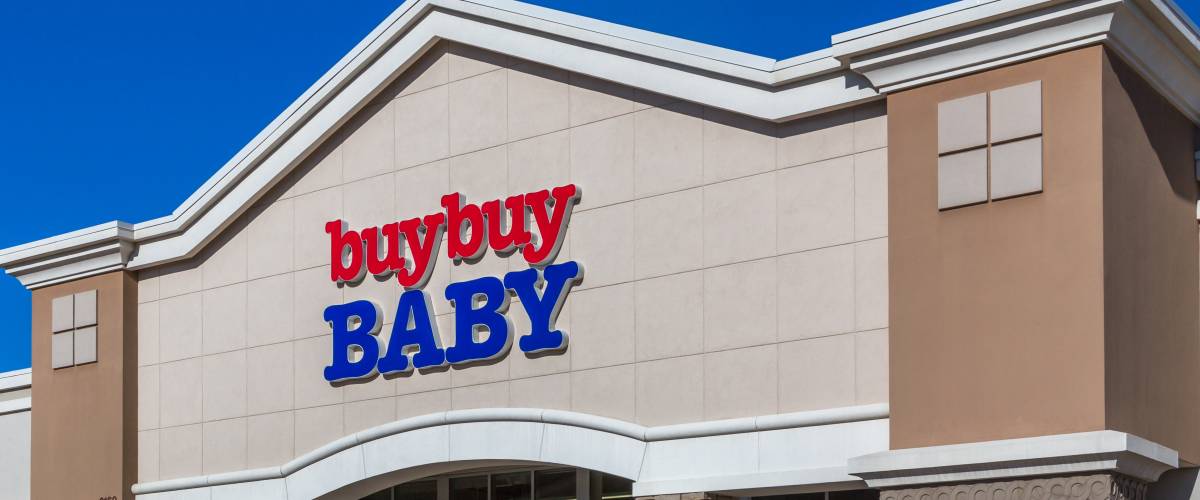
Stores closing: 120
It’s time to say “bye-bye” to Bed Bath & Beyond’s sister store, Buy Buy Baby, in 2023.
The store comes as a package deal with the closure of remaining Bed Bath & Beyond locations since parent company Bed Bath & Beyond Inc. filed for bankruptcy.
As operations wind down, the retailer is hosting major sales to clear out inventory. Prices continue to drop as they veer closer to official closing – so if you’re expecting, now is the time to take advantage.
28. Tuesday Morning

Stores closing: 200
Discount home goods store Tuesday Morning is officially closing all 200 of its remaining stores. They made the announcement on their website and Facebook page in April, promoting sales of up to 30% off at select remaining locations.
Tuesday Morning first filed for bankruptcy in May 2020, during one of the peaks of the COVID-19 pandemic. At that point, the company closed 230 of its stores.
While the business may have managed to stay afloat for the past couple years, the retailer has filed for bankruptcy again and plans to shutter all remaining stores.
It’s worth noting that the company doesn’t sell products online, leaving their in-store purchases to carry the revenue during a period of declining foot traffic to big-box stores.
29. Foot Locker

Stores closing: 400
With hopes of entering the more niche sports footwear market, Foot Locker will be closing 400 of their underperforming in-mall stores by 2026.
In the company’s most recent fourth-quarter earnings report , Foot Locker CEO Mary Dillon outlined a new long-term plan for the retailer.
"We are incredibly excited to introduce our "Lace Up" plan with a new set of strategic imperatives and financial objectives that are designed to set us up for success for the next 50 years," Dillon said.
This plan includes a widespread re-branding and the opening of hundreds of new concept stores that prioritize storytelling and presentation over the next few years. If you’re a sneaker aficionado, these highly curated stores might be enticing.
30. Bath and Body Works

Stores closing: 50
Malls in 2023 are going to become a little less fragrant without the scented candles and lotions of Bath and Body Works filling the air.
While the company may be closing around 50 of their in-mall stores, you’re not totally out of luck if you’re a fan. In a report on their fourth-quarter performance, the retailer shared that it’s “making important strategic investments to enable future growth” amid closures.
With plans to remodel sister store White Barn and open more Bath and Body Works locations outside of malls, it’s not the end for this popular chain.
31. Gap and Banana Republic

Stores closing: 350
Gap Inc. plans to close 350 of its Gap and Banana Republic stores across North America by 2023, as the company adapts to both the increase in demand for online shopping and decrease in foot traffic to retail stores. According to the retailer, the goal behind these mass closures is to have a “smaller and healthier fleet of stores.”
The Wall Street Journal reported that Gap Inc. had a challenging financial year in 2022, with sales across all stores down by 5%.
If you’re a fan of the brand, these closures don’t have to be a total bust. While plenty of Gap and Banana Republic stores are closing, the company’s other stores — Old Navy and Athleta — are said to be opening up more locations throughout the year.
32. Walmart

Stores closing: 20
In 2022, Walmart CEO Doug McMillon said the rise in shoplifting at Walmart stores could cause price hikes and store closures if authorities don’t adequately intervene.
As of 2023, 20 stores are set to close due to underperformance. This follows the initial closure of all Walmart stores in Portland, Oregon this past March for the same reason.
Despite these closures, Walmart still has a whopping 4,624 locations across the U.S., according to data company ScrapeHero.
33. Party City

Stores closing: 22
The party is coming to a close for 22 Party City locations. Earlier this year, the company filed for bankruptcy and announced plans to slim down their retail presence.
In a press release, Party City CEO Brad Weston cited the global supply chain crisis and “pandemic headwinds” as challenges that have impacted the industry.. As the company shutters 22 stores, the plan is to restructure its debt through bankruptcy.
“As we take this important step to put our business on stronger financial footing for the future,” Weston said, “we are as committed as ever to inspiring joy by making it easy for our customers to create unforgettable memories.”
34. Nordstrom

Stores closing: 15
Department store chain Nordstrom is closing all of its stores in Canada — a total of 13 — and two of its U.S. locations, both in San Francisco. Nordstrom cites rising crime rates, inflation, and the increase of remote work as reasons for closing the San Francisco shops.
As far as its Canadian locations go, the department store has only been around since 2014 but has underperformed, leading to closures north of the border.
35. Shoe City
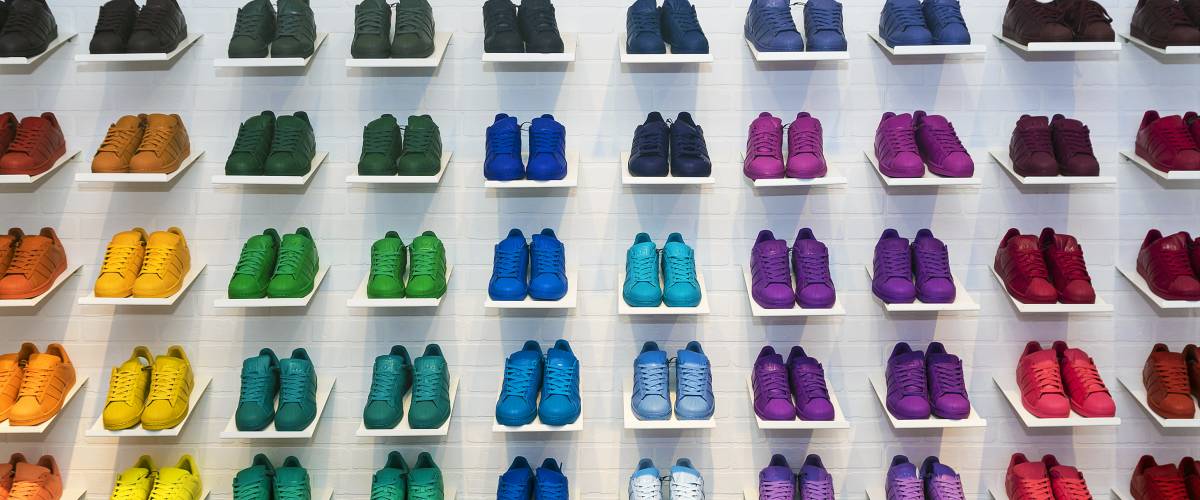
Stores closing: 39
While boots might be made for walkin’, you’ll have to walk on over to another store to get your next pair.
After 74 years of business, Shoe City is closing all of its stores across Maryland, Virginia, and the District of Columbia — in addition to its online platform ycmc.com — after filing for bankruptcy in March.
The announcement came after a few years of increasing financial struggle for the company. In its bankruptcy filing, the company was said to have $16 million of unsecured debt that it’s unable to pay.
36. Christmas Tree Shops

Stores closing: 10
Christmas Tree Shops makes decking the halls easy. But, depending on where you live, you may be out of luck when it comes to decor shopping for the next holiday season.
Of its 82 stores across 20 states, Christmas Tree Shops will be closing 10 locations in 2023.
Stores pending closure will host sales to clear out inventory, offering deals of up to 30% off. Despite its name, the store also sells furniture, home decor, appliances, and more for every season.
37. Macy’s

Stores closing: 4
After 36 store closures in 2021, Macy’s continues to shutter its locations with four more in-mall stores slated to close in 2023.
In its fourth quarter and 2022 earnings report, the company states that “the heightened level of uncertainty within the macroeconomic environment will continue in 2023,” but “[t]he company is taking a prudent approach to its outlook, which reflects the potential differences in the severity and duration of macroeconomic headwinds, offset by how the business can respond.”
Despite potential economic turmoil looming, Macy’s intends to up the ante for its business, as shared in their 2022 report: “As we look to 2023 and beyond, we believe our five growth vectors which include our private brands reimagination, off-mall expansion, online marketplace, luxury brands acceleration and personalized offers and communication will further solidify our modern department store positioning.”
38. Whole Foods

Stores closing: 1
Despite only opening in 2022, Whole Foods’ flagship store in downtown San Francisco is closing this year due to rampant crime and safety issues in the area. Whole Foods closed six other stores in 2022.
While unfortunate for local shoppers and store staff alike, a Whole Foods spokesperson told Best Life that “all team members will be transferred to one of [the company’s] nearby locations.”
As of right now, no other Whole Foods stores are set to close in 2023.
39. Morphe Cosmetics

Stores closing: 18
Cosmetics store Morphe is closing all 18 of its U.S. stores in 2023. Morphe products will remain available for purchase online at select U.S. retailers, and at Morphe stores abroad, but the company will shutter its namesake stores in the U.S.
A company spokesperson from Morphe told Glossy that “following a careful evaluation of all aspects of [the] business, [Morphe has] made the strategic decision to enhance our focus on the Company’s wholesale and e-commerce operations going forward. We believe this shift will position Morphe to better compete in the broader beauty landscape and more efficiently reach our customers where and how they shop.”
So you can still buy your favorite Morphe products in the U.S., just not from a brick-and-mortar store.
40. Big Lots

Stores closing: 4
One-stop-shop department store Big Lots officially closed four of its stores — all in Colorado — earlier this year.
And the four locations may not be the only to close before the end of 2023.
In its 2022 third-quarter earnings call, Big Lots President and CEO Bruce Thorn referenced “an accelerated number of closures this year . . . driven both by selling outright a number of our store sites . . . [and] underperforming stores that we look to accelerate the closure of.”
41. Amazon Go

Stores closing: 8
Amazon Go is Amazon’s own chain of convenience stores — yes, Amazon has found a way to be even more convenient.
But this year the retailer will close eight of its 31 locations. As of right now, the company says no other stores beyond those eight are at risk of closure.
“We remain committed to the Amazon Go format, operate more than 20 Amazon Go stores across the U.S., and will continue to learn which locations and features resonate most with customers as we keep evolving our Amazon Go stores,” a spokesperson told Retail Dive.
42. Target

Stores closing: 4
Target is a beloved retail store that has virtually everything. You can grab groceries, shampoo, and a new outfit all in one trip.
While the retailer has around 40 upcoming openings listed on its website, it will be closing four of its small-format locations this year. The stores slated for closing are located in Maryland, Minnesota, Pennsylvania, and Virginia.
Target spokesperson Kayla Castañeda told Retail Dive, “[t]he decision to close any of our stores isn’t something we take lightly. It’s an action we take only after multiple years of working to improve performance.”
43. The RealReal
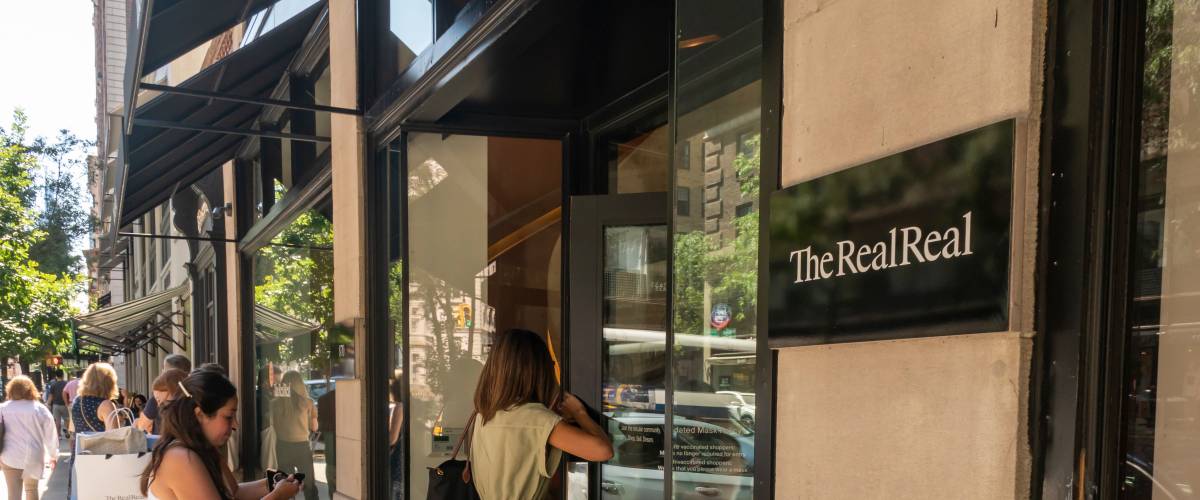
Store closing: 6
Luxury consignment company The RealReal is closing six of its stores and laying off 230 employees — 7% of its workforce — to cut operating expenses.
Global Data Managing Director Neil Saunders told Retail Dive that “although resale remains one of the stars of the apparel market with exceptionally high growth, the current environment is more challenging as consumers are a little more conservative about making purchases.”
Perhaps Gen Z’s preference for thrifting and a more budget-friendly approach to shopping is reigning supreme.
44. Burger King

Stores closing: 400
Is Burger King’s reign coming to an end? Well, its subjects are certainly dwindling. The popular fast food restaurant chain is set to close around 400 locations in the U.S. over the course of the year.
According to the Q1 report for 2023 from Restaurant Brands International, Burger King has already closed 124 locations this year – previously, there were more than 7,000 in the country.
Despite the upcoming closures, reported U.S. sales in Q1 rose by 8.7%.
45. Krispy Kreme
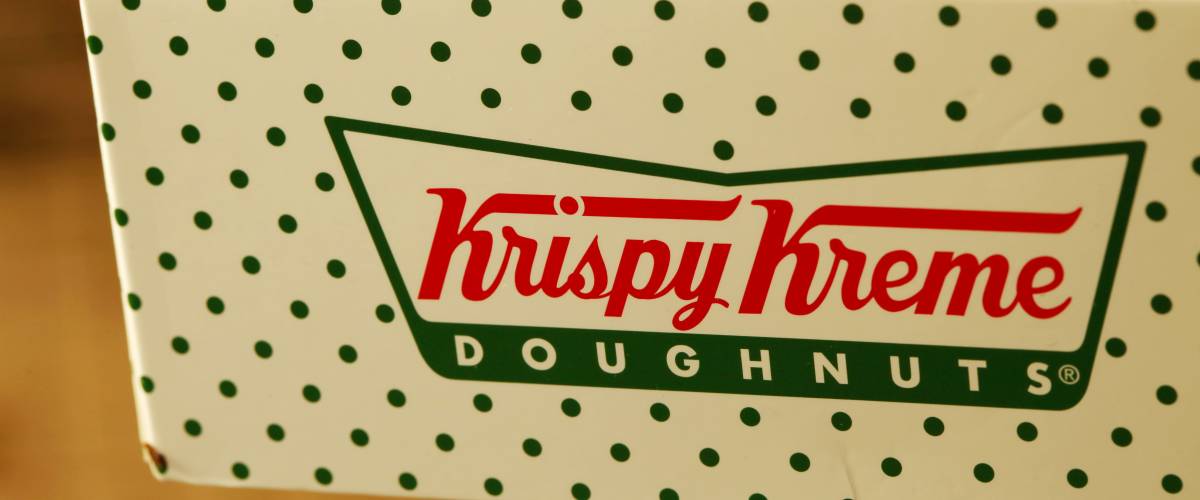
Stores closing: 14
On an earnings call in late 2022, Krispy Kreme President and CEO Mike Tattersfiel shared that the popular donut and coffee shop "had positive organic growth in every country around the world, despite a tough macro environment.”
Despite this, the chain still plans to shutter 14 of its stores in 2023, as reported by Eat This, Not That!.
The news came shortly after Krispy Kreme and McDonald’s struck up a partnership in which select McDonald’s locations would begin selling the brand's donuts.
46. Hardee’s

Stores closing: 39
Following local news reports on Hardee’s locations closing in the South, Restaurant Business Online reported that 39 locations of the fast-food chain have closed this year after one of its franchisees — Summit Restaurant Holdings — filed for bankruptcy.
In a statement to Restaurant Dive, CKE Franchise said that its “goal is to maintain the maximum number of stores continuing to operate, backed by a capital structure that is sustainable and poised for long-term growth and success.”
So while the 2023 outlook for Hardee’s might look dismal, the chain hasn’t thrown in the towel yet.
47. Steak n’ Shake
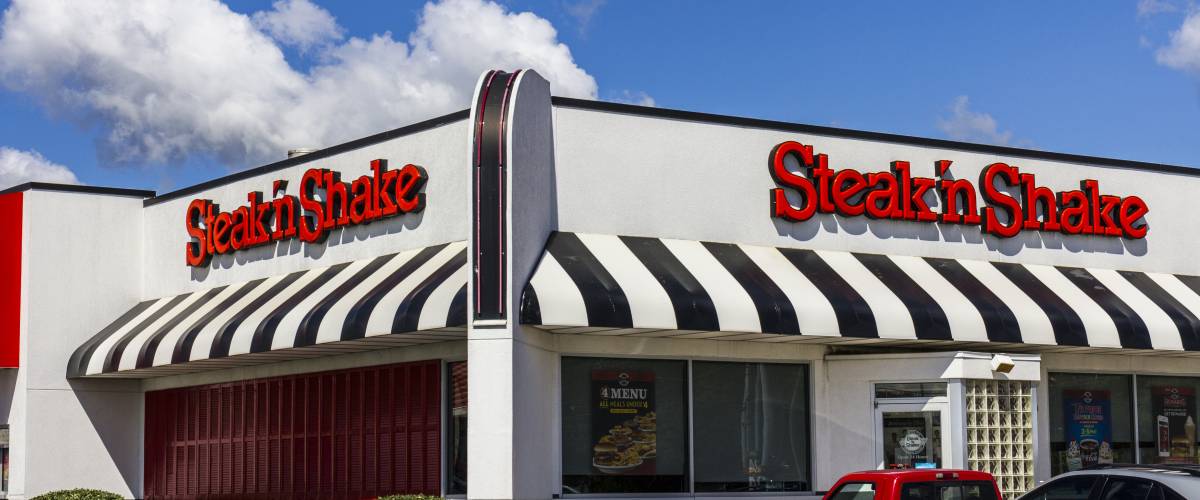
Stores closing: 41
According to a March 2023 report by Steak n’ Shake’s parent company Biglari Holdings, the restaurant is down 41 locations compared to March of 2022 — dropping the total number of open stores to 493.
This sweet-and-salty chain hasn’t had the best track record the past few years, either. In 2022, Steak n’ Shake shuttered 30 locations. According to a report by Restaurant Business, last year was the fourth year in a row that the chain closed more restaurants than it opened.
48. Chick-fil-A
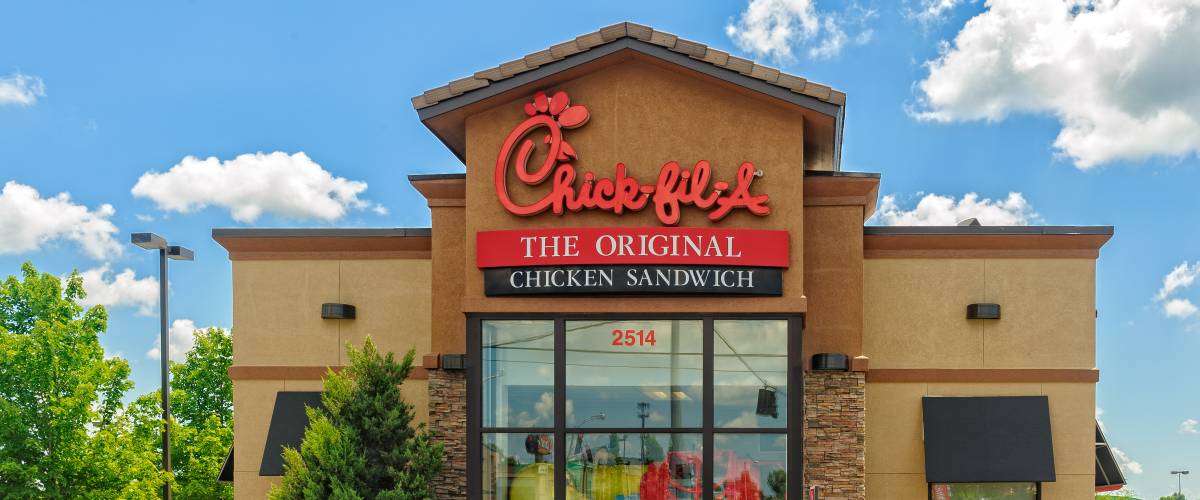
Stores closing: 1
This beloved, southern chicken shop known for its sandwiches and waffle fries may not be facing as many closures as some other retail and restaurant chains this year, but it is losing its historic, first-ever location.
After 56 years, the original Chick-fil-A restaurant in Atlanta, Georgia is closing up shop.
The restaurant shared on its website that this particular location – situated in the food court of Atlanta’s Greenbriar Mall – was groundbreaking for its time. Greenbriar Mall was also one of the first indoor malls in the Southeast.
The company didn’t elaborate on its reasoning behind the closure, but lower mall foot-traffic is a speculated cause.
Find a financial adviser in minutes
Are you confident in your retirement savings? Get advice on your investment portfolio from a certified professional through WiserAdvisor. It only takes 5 minutes to connect with an adviser who puts you first.
Get Started